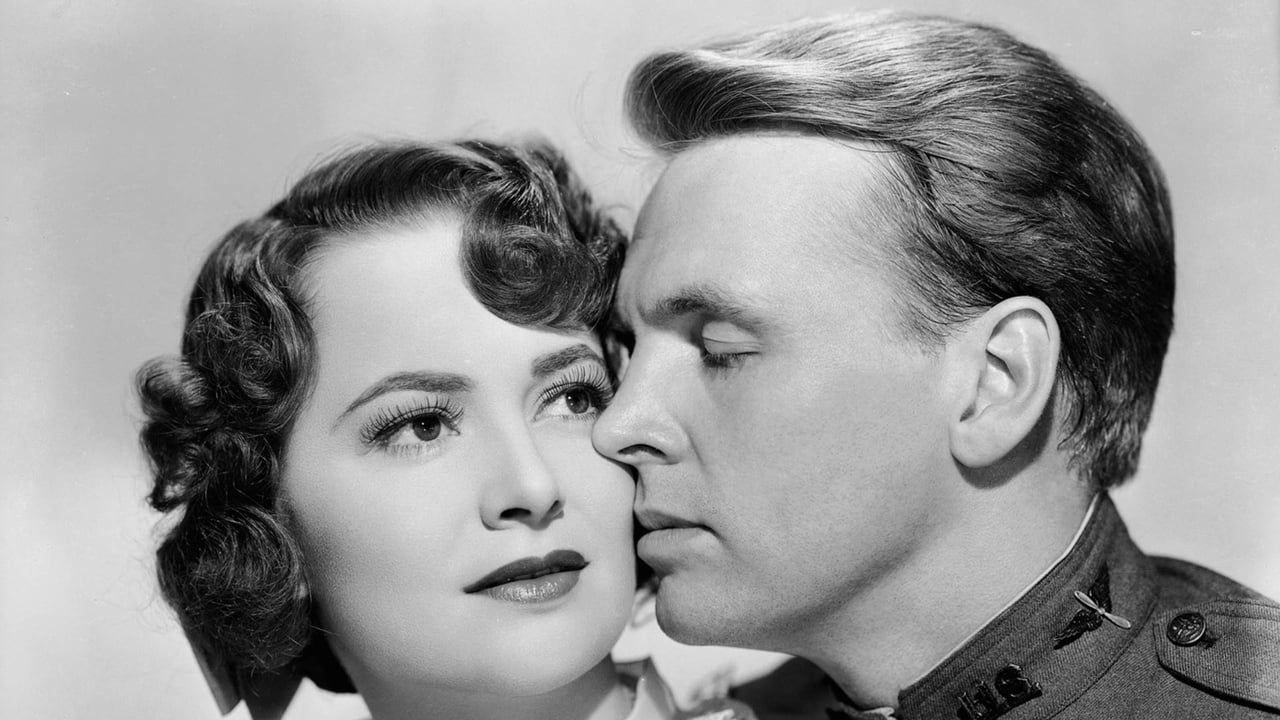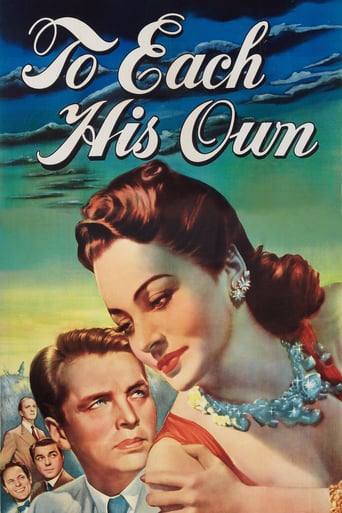KnotStronger
This is a must-see and one of the best documentaries - and films - of this year.
Hadrina
The movie's neither hopeful in contrived ways, nor hopeless in different contrived ways. Somehow it manages to be wonderful
Derry Herrera
Not sure how, but this is easily one of the best movies all summer. Multiple levels of funny, never takes itself seriously, super colorful, and creative.
Brennan Camacho
Mostly, the movie is committed to the value of a good time.
RanchoTuVu
A successful cosmetics tycoon (Olivia de Havilland) goes on a flashback of her life story as she mans her assigned post during a bombing raid in 1944 London. This trip takes us to her youthful days as the beautiful daughter working in her father's pharmacy in small-town New York state where she's the prize for a couple of suitors, but falls for a barnstorming WWI pilot (John Lund) and ends up having a son out of wedlock. The prevailing morals make keeping the child out of the question, but her love for her son is at the center of the film, as is her emerging success as a businesswoman which allows her financial independence which opens more doors for her character. This role won de Havilland the Oscar for best actress and it is a great part which shows a woman taking on her times and succeeding in doing so.
jotix100
We meet Jody Norris as she prepares for a night duty, as a volunteer,in war torn London during WWII. Her companion that evening is an outspoken man, who turns out to be Lord Desham, a well respected gentleman with the right connections. Jody, who has made a fortune in England, is paying back for the generosity she received while living there. At first, she is snippy with Desham, whom she does not care for as they meet. She becomes alive after Desham takes her for a drink and learns about the arrival of a train to Euston.While she waits, we get to know her story, which has not been a happy one. The son she had from a meeting with an Air Force ace, left her pregnant in a small town where the mere fact would have been quite a shock. The boy she delivers, by a strange set of coincidences, ends up with one of the town's richest girls. Jody's pilot lover, dying in combat, left her to fend for herself. Since she cannot have her son, she decides to go to New York to start a new life and becomes quite successful in a line of ladies' cosmetics with a friend. As the train arrives to Euston, one realizes she has waited for Gregory, the son that was taken away from her, who like his father, is involved in another war. Jody must do everything in her power to keep him for his stay in London, but she is not prepared for his plans to share his free time with the girl he wants to marry, who happens to be in the war. Finally, through Desham's intervention, Gregory realizes who this generous woman really is."To Each His Own" directed by Michael Leisen was one of the best melodramas from that era. Charles Brackett added another success to his great career in Hollywood with the screenplay he wrote with Jacques Thiery. It was an excellent combination for this inspired film that gave its star Olivia De Havilland her well deserved recognition in a role she made her own. The story reminded this viewer of that old biblical story of King Solomon and the two women claiming to be the rightful mother of an infant. The real mother renouncing to her right because she did not want the infant divided in two, relates to the sacrifice Jody Norris must make since everything conspired against her having her own son. In the end, she is rewarded when the son recognizes her love for him through the years.The well deserved award by Ms. De Havilland was a tribute to the way she created a character that was real as well as noble. The actress showed she had what it took to carry a picture with panache. John Lund is seen briefly as the father and the son in the life of Jody Norris. There are remarkable performances of players like Mary Anderson, Ronald Culver, Philip Terry, Bill Goodwin, and Victoria Horne, among others.Daniel Fapp, veteran of many films, contributed with his black and white cinematography. The music score by Victor Young reflected the times in which the action took place. Michael Leisen was inspired in his approach to the way he presented the story which deserves a view even as the picture is seldom seen these days.
davy_crickett
First, let me say I'm in awe of the previous reviewers and their spot-on knowledge of this film and Olivia de Havilland's body of work. Bravo, and thank you for pointing me towards this "hidden" treasure.So allow me to confirm that this "small" 1946 movie is still riveting fare in 2010. The subject matter is just as relevant today and will speak to women for generations to come. In that regard, its forever timeless.Filmed in b&w, and happily so, though 7 years newer than "The Wizard of Oz"... I'm still waiting for them to colorize the rest of that bloated Saturday matinée flick. *s* Tune in next time when I attack "Gone with the Wind," "Casablanca" and "Citizen Kane."This film dealt with a delicate subject in a frank and realistic manner. I'm particularly impressed by the way this movie was story-boarded. It flowed brilliantly. If shot today, it would be shoved in my face, every stinkin' detail, nothing left to the imagination... plenty of yelling, smashing dishes and cussing.Equally impressive is Ms. de Havilland's Oscar-winning performance. I couldn't take my eyes off her. When the movie took her back 20 years younger, my mouth dropped.But it was much more than the make-up. It was Olivia.Happy ending or sad? not telling. I'll reveal this, though. This 55 year old man doesn't typically cry at weddings or funerals, but by the closing credits, both cheeks were wet. But then maybe its because she reminds me of my mother, 1933-1981.Search out this gem.
MartinHafer
This is the first film that Olivia DeHavilland received an Oscar for and you can sure see why. While the part did not call for the fullest range of emotions, she was able to crying and weep most convincingly and I really found myself sucked into the film by her. Olivia played a "Stella Dallas-like" self-sacrificing mother that tugs at your heart--doing anything she could for her little boy. At times, it was ALMOST too melodramatic and weepy, but the writers deftly skirted the edges and this resulted in a wonderful and engaging film that only the hardest-hearted people would avoid.The story itself was pretty racy for 1946, as the main theme involved an illegitimate child borne by DeHavilland. The father was a WWI pilot and he was lost in combat, so it was up to DeHavilland to do what was best for the child--even if it meant letting go. Oddly, the part she played was perhaps too self-sacrificing, as she never really had much of a life--this made it a bit hard to believe, but this can be forgiven.

